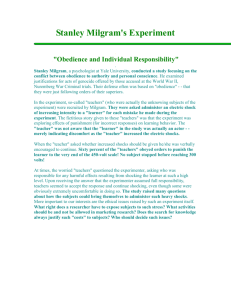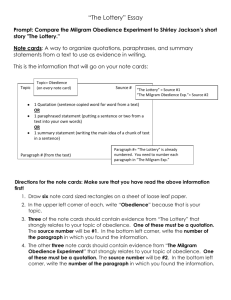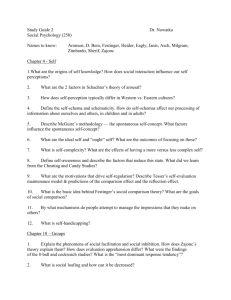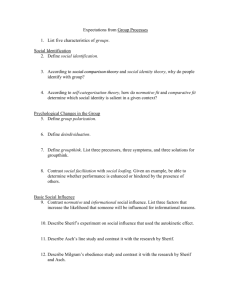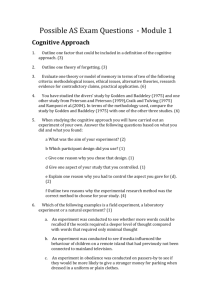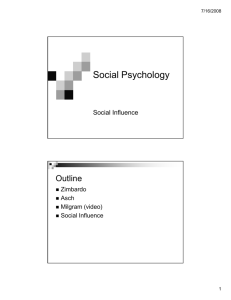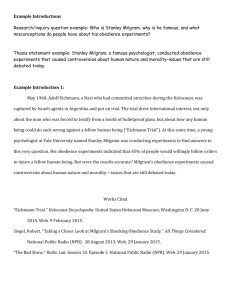Introduction to Taking Sides - Minnesota State University Moorhead
advertisement
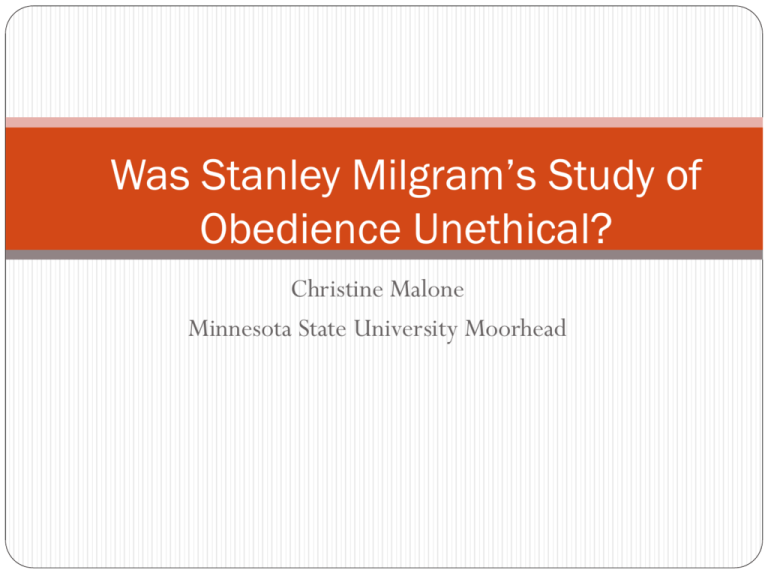
Was Stanley Milgram’s Study of Obedience Unethical? Christine Malone Minnesota State University Moorhead The Issue: Was Stanley Milgram’s obedience study unethical or was he justified in subjecting the participants to a stressful situation based on his debriefing/follow-up procedures and the knowledge derived from the results? Source Blass, T. (1999). The Milgram paradigm after 35 years: Some things we now know about obedience to authority. Journal of Applied Social Psychology, 29, 955-978. Relationship to the Issue Blass objectively reviews research sparked by Milgram’s obedience studies. So often Milgram’s set of obedience experiments overshadows his other work and more importantly, the work of other researchers in the area of obedience. Blass reviews 35 years of research, providing a status report on four questions surrounding obedience to authority. Main Objectives What is the nature of authority in the obedience experiment? Why do naïve respondents consistently underestimate obedience rates? Are there gender differences in obedience? Have obedience rates changed over time? Conclusions about the Nature of Authority Milgram used “the legitimate authority” explanation—1) accept authorities definition of situation and just perform as ordered and 2) shift into agentic state—relinquish responsibility to authority and follow orders without regard to morality. Others have proposed an “expert-command authority” explanation Research has shown that obedience in Milgram’s paradigm seems to be the result of both of these explanations. Blass (1992) himself attempts to separate these two explanations—naïve observers considered the expert power explanation as most likely, followed very closely by the legitimate power explanation. Conclusions about Underestimating Obedience Why such a big contrast between our expectations of very little obedience and the actual result of a majority of subjects obeying? Prediction of experts before the original 1963 experiment— Only 1 in 1,000 would go all the way to the end of the shock meter. Blass (1991) found that naive observers still underestimate obedience rates—just as in Milgram’s time Why? The fundamental attribution error. Are There Gender Differences in Obedience? Milgram (1974) varied gender and found same rate of obedience (65%) in women as in men. Blass reviewed nine replications and eight of nine studies found no gender differences. A difference that has been reported by Milgram and others— self-reported tension of obedient women was higher than for men. Have Obedience Rates Changed Over Time? Blass took six of Milgram’s studies and 14 replications by other researchers and correlated the rank order of the year of publication with the rank order of its obedience rate. Levels of obedience across studies ranged from 28% to 91%, but there was no systematic relationship between when a study was conducted and the amount of obedience obtained. Provides evidence against enlightenment effects. Weaknesses/Propaganda References a lot of his own work…but does include the work of many others Objective, well-reasoned overall Starts the paper with a provocative quote from Milgram describing us as “puppets controlled by the strings of society.” Counterargument Blass summarizes the results of carefully controlled laboratory findings about deception, but what do they really tell us about deception in real-life settings? My Conclusions Milgram’s studies were definitely influential Gets people’s attention regarding ethical issues…but often leads us to make snap judgments that do not include all existing information or evidence. But Milgram’s studies should only be a starting point for our investigation into ethics & the topic of deception. Discussion What were some benefits that resulted from Milgram’s initial experiments on destructive obedience? How did his studies influence the field of social psychology? In hindsight it is easy to find problems with Milgram’s study. But at the time of the experiment, did Milgram act responsibly? reasonably? professionally?
